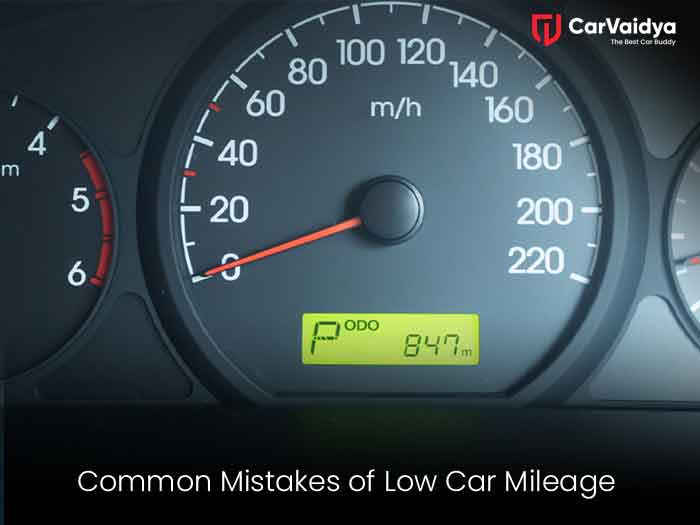In today's fast-paced world, owning a car has become more of a necessity than a luxury for many people. With the rising cost of fuel, maintenance, and other associated expenses, ensuring optimal fuel efficiency is crucial to saving money and reducing environmental impact. However, despite advancements in automotive technology, many drivers unknowingly engage in habits that significantly lower their car's mileage. In this article, we'll focus into some common mistakes to avoid while driving to maintain better fuel economy.
Ignoring Regular Maintenance
One of the most critical factors affecting fuel efficiency is the overall condition of your vehicle. Neglecting routine maintenance tasks such as oil changes, air filter replacements, tire rotations, and spark plug inspections can lead to decreased mileage. Dirty air filters restrict airflow to the engine, causing it to work harder and burn more fuel. Similarly, old or improperly lubricated engine components can increase friction and reduce efficiency. Therefore, sticking to your car's recommended maintenance schedule is essential for optimal performance.
Underinflated Tires
Driving with underinflated tires not only poses a safety risk but also reduces fuel economy. When tires are not properly inflated, they create more rolling resistance, requiring the engine to exert additional power to maintain speed. This extra workload can result in decreased mileage over time. Regularly check your tire pressure and inflate them to the manufacturer's recommended levels to improve fuel efficiency and extend tire life.
Aggressive Driving Habits
Excessive speeding, rapid acceleration, and abrupt braking are all common habits that can negatively impact fuel economy. Aggressive driving not only increases fuel consumption but also puts undue stress on various vehicle components, leading to more frequent maintenance issues. By adopting a smoother driving style, maintaining a consistent speed, and anticipating traffic flow, you can significantly improve your car's mileage and prolong its lifespan.
Excessive Idling
Leaving your car running while parked or idling unnecessarily wastes fuel and contributes to pollution. Whether waiting in traffic or warming up your vehicle in cold weather, prolonged idling burns fuel without getting you anywhere. Instead of idling, consider turning off the engine if you anticipate being stationary for more than a minute. Additionally, modern engines don't require lengthy warm-up periods, so avoid idling to warm up your car before driving.
Carrying Excessive Weight
Carrying unnecessary cargo or additional weight in your vehicle can increase fuel consumption, especially in smaller cars and trucks. The extra weight places more strain on the engine, requiring it to work harder to propel the vehicle forward. To improve mileage, declutter your car and remove any items that aren't essential for your trip. Additionally, rooftop cargo carriers and bike racks create aerodynamic drag, further reducing fuel efficiency, so use them sparingly.
Using Improper Gear
Driving in the wrong gear can significantly impact fuel economy, especially in vehicles with manual transmissions. Operating at too high or too low of a gear ratio can cause the engine to run inefficiently, leading to increased fuel consumption. To maximize mileage, shift gears at the appropriate RPM range and avoid lugging the engine by driving in too high of a gear at low speeds.
Neglecting Aerodynamics
The aerodynamic design of your vehicle plays a crucial role in fuel efficiency, particularly at higher speeds. Roof racks, spoilers, and open windows can disrupt airflow and increase drag, forcing the engine to work harder to maintain speed. Whenever possible, keep windows closed and remove roof-mounted accessories to streamline your vehicle and improve mileage.
Using the Air Conditioner Excessively
While car air conditioning provides comfort during hot weather, running it continuously can significantly reduce fuel economy. Air conditioners place an additional load on the engine, increasing fuel consumption, especially at higher speeds. To minimize the impact on mileage, use the AC sparingly and rely on natural ventilation whenever feasible. Additionally, parking in shaded areas and using sunshades can help keep your car cooler, reducing the need for AC.
By avoiding these common mistakes and adopting fuel-efficient driving habits, you can maximize your car's mileage and save money on fuel costs in the long run. Remember to prioritize regular maintenance, keep tires properly inflated, drive smoothly, minimize idling, reduce excess weight, use appropriate gears, maintain aerodynamics, and limit AC usage to achieve optimal fuel efficiency. With conscious effort and mindfulness behind the wheel, you can contribute to a greener and more cost-effective driving experience.
You can read some other articles also
Tips To Keep Your Car in Top Shape during Cold Weather
Lane Departure Warning Systems
Ensuring Safe Night Driving Proper Vehicle Lighting Practices


0 Comments